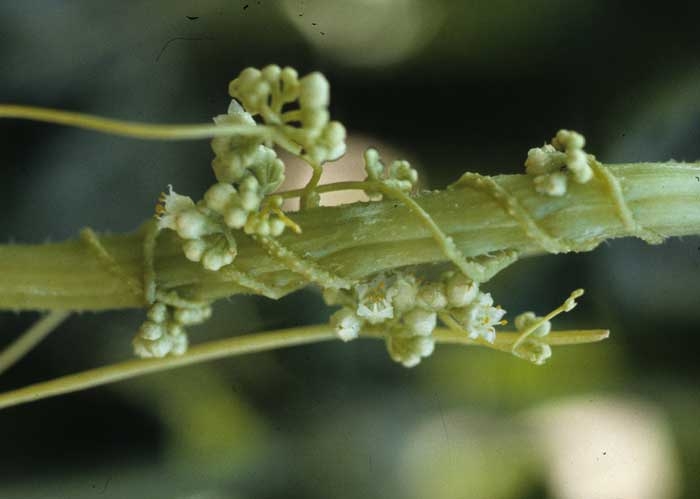Cuscuta spp. (Dodder)
Cuscuta spp. is a parasitic plant of which many species have been reported around the world on the most diverse hosts. Salads are sometimes parasitized by it which gradually colonizes them thanks to twining stems. Salads affected in this way show reduced growth (Figure 1).
On leafless dodder stems (Figure 2), suckers are also observed which allow it to feed at the expense of its host without having to resort to photosynthetic activities.
They also carry small flowers of variable color according to the species (white, yellow, pink) gathered in glomeruli (figure 3). Countless seeds are produced and remain dormant in the soil for many years; they are easily disseminated, like the majority of pathogens in the soil, by water, soil particles ...
Its control is particularly difficult; it consists in implementing in a complementary way measures also used with regard to soil parasites: crop rotations, crops of non-host plants, pre-emergence herbicides, etc.
In France, this parasitic plant does not affect salads.
Its control is particularly difficult; it consists in implementing in a complementary way measures also used with regard to soil parasites: crop rotations, crops of non-host plants, pre-emergence herbicides, etc.
In France, this parasitic plant does not affect salads.






